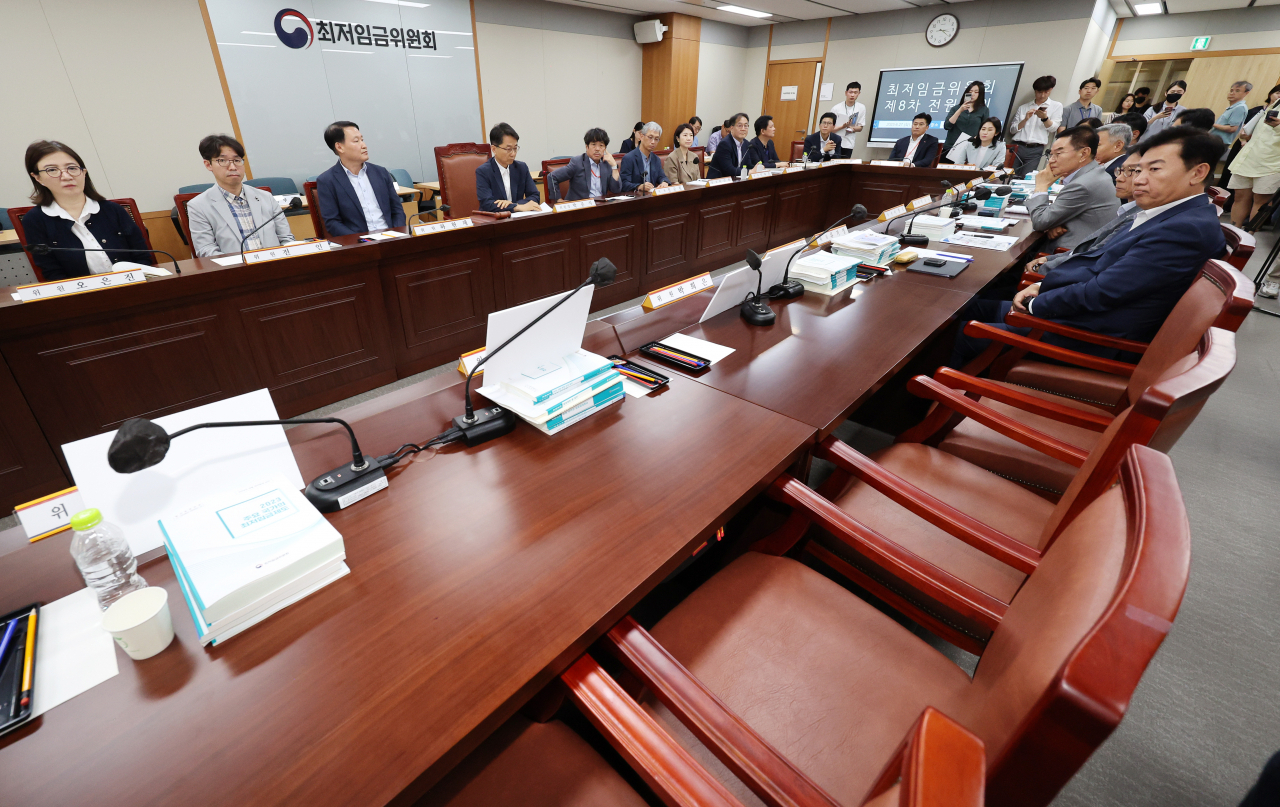Talks on minimum wage fall through as deadline looms
Eyes on whether minimum wage for 2024 will surpass 10,000 won
By Im Eun-byelPublished : June 27, 2023 - 18:22

Talks on the minimum wage level for 2024 fell through Tuesday, two days before the deadline for the decision, after labor representatives walked out.
The Minimum Wage Commission, which is composed of members spanning labor, business and the general public, was to its eighth round meeting to discuss the minimum hourly amount employers must pay their workers next year.
But the meeting was cut short as labor representatives walked out of a meeting expressing their disapproval against the government, calling for the Labor Ministry to authorize a new member on their side.
Currently, the labor representatives lack a member as one was dismissed from his post for participating in an illegal protest.
Though the labor representatives have suggested a new person for the position, the ministry has refused to appoint the member, viewing it as inappropriate because he participated in the same protest as the dismissed member.
"The Minimum Wage Commission has lost its independence and autonomy, which have to be protected at all costs," Federation of Korean Trade Unions General Secretary Ryu Ki-seob, a member of the labor representatives, said before leaving the meeting.
If the meeting had proceeded as scheduled, the representatives from the business field were likely to call for a wage freeze at the meeting, maintaining this year’s minimum wage set at 9,620 won ($7.40), while the labor representatives have suggested raising the wage to 12,210 won.
On Sunday, the Korea Enterprises Federation, a commission member representing business, issued a report that claimed it was difficult to raise the minimum wage beyond the current figure.
According to the report the proportion of laborers who have not received the minimum wage has increased from 4.9 percent in 2020 to 12.7 percent in 2022.
In 2022, nearly 30 percent of employees at accommodations, restaurants and businesses employing under five people -- industries with a lot of minimum wage workers -- were paid below the minimum wage, the report said.
“It is difficult to further raise the minimum wage from that of this year, in analysis of businesses’ ability to pay (the current minimum wage) and the standards for deciding on the minimum wage,” the federation said through the report.
A separate study conducted by the business lobby group Federation of Korean Industries suggested that 28,000 to 69,000 jobs will disappear if the minimum wage is raised to 10,000 won next year.
In addition, the lobby group also predicts the possibility of between 194,000 to 470,000 jobs disappearing if the minimum wage is set to the level recommended by the labor group at 12,210 won.
The labor interest members' proposal, a 26.9 percent on-year increase, would translate to a monthly income of over 2.55 million won, based on a 40-hour workweek.
“The minimum wage for next year should be raised following the growing concerns of widening income disparity and polarization, amid high inflation and the continuous decline of real wages,” the labor representatives said Thursday.
Even if the agreement for the 2024 minimum wage falls below the labor representatives’ suggestion, if it jumps by more than 3.95 percent the hourly minimum wage will surpass the 10,000 won mark for the first time.
It is likely that the minimum wage for 2024 will be decided after the legal deadline that falls on Thursday. Hopes for the discussions wrapping up in time are not high, as the annual discussion has met the deadline only nine times since the minimum wage was first introduced in Korea in 1988.
The current Minimum Wage Act states the minimum wage shall be determined by taking into account various factors including employees’ cost of living, the wages of similar employees, labor productivity and the distribution of income.



















![[Today’s K-pop] Treasure to publish magazine for debut anniversary](http://res.heraldm.com/phpwas/restmb_idxmake.php?idx=642&simg=/content/image/2024/07/26/20240726050551_0.jpg&u=)